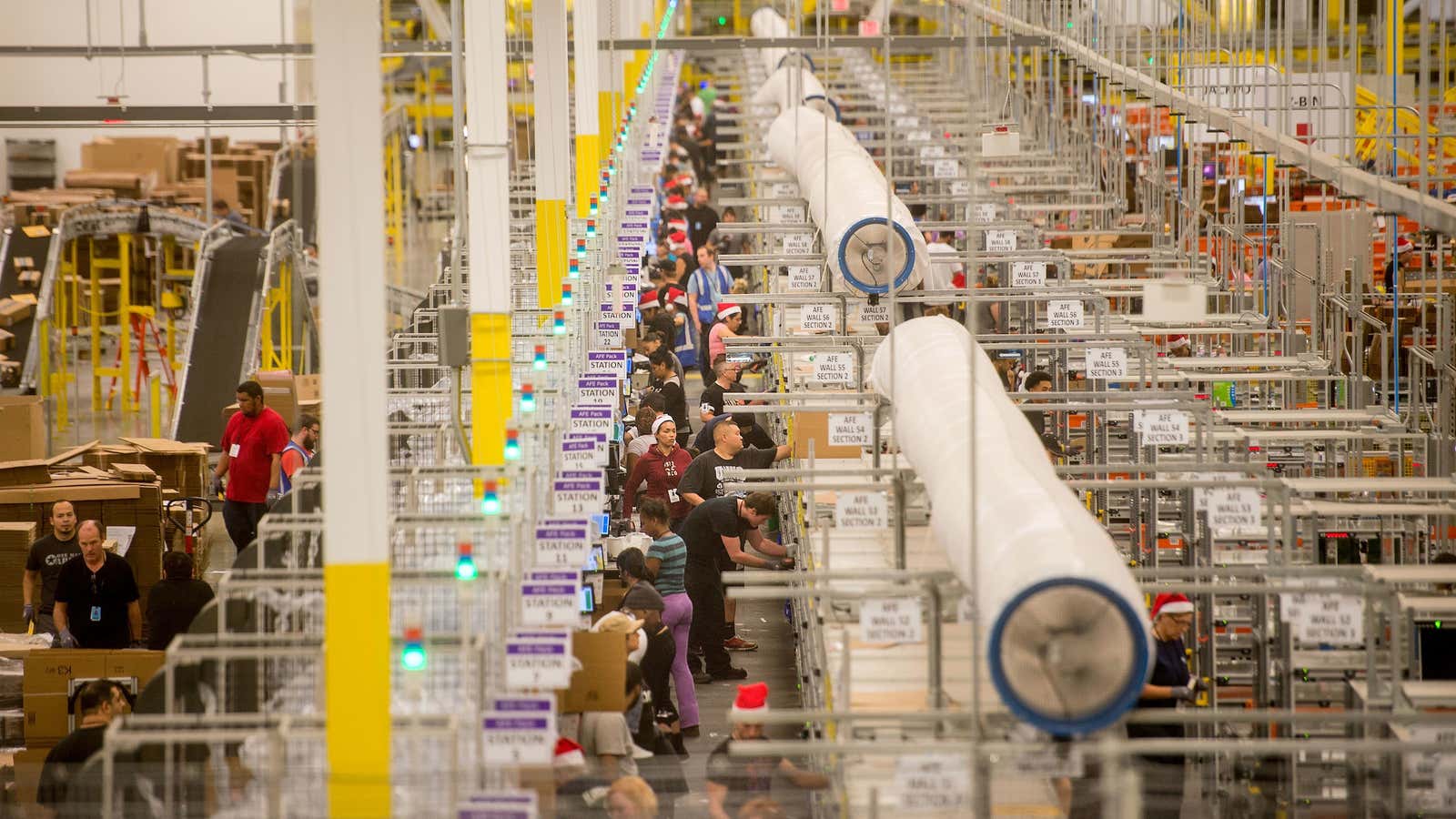The Quidsi takeover is a defining story of Amazon’s capacity for ruthlessness.
Quidsi’s site, Diapers.com, quickly became popular, threatening Amazon’s e-commerce dominance in a lucrative market. Hackles raised, Amazon burned millions dropping prices, eventually pressuring Quidsi into a sale.
Now, Marc Lore, one of the company’s two founders, is starting the extremely well funded and value focused Jet.com to try and beat Amazon on its core e-commerce turf.
Amazon’s style can be confrontational and abrasive, intentionally so. CEO Jeff Bezos is known to tell executives in no uncertain terms what they’re doing wrong. Lore told Brad Stone in Bloomberg Businessweek that he wants Jet’s work environment to be the exact opposite. There won’t be much confrontation. In fact, there won’t even be performance reviews. Lore believes feedback should be constant and congenial.
Amazon makes employees sign restrictive noncompete agreements. (Lore’s expires early this year.) Jet won’t have them. And instead of defaulting to extreme secrecy, all Jet’s board meetings will be posted online. Lore is more interested in creating a culture of loyalty and trust.
“If someone is unhappy here and doesn’t see an opportunity for growth, OK, good luck, go to Wal-Mart,” Lore told Stone. “I want to prove to myself that a different kind of culture can work and that you don’t have to be like that to be successful.”
In fact, culturally, Jet looks awfully like pre-acquisition Quidsi. In an interview last year previewing the launch of his own startup, Cafe.com, Quidsi’s other co-founder and Jet investor, Vinit Bharara described their approach.
“We spent a lot of time in our last company focusing on the culture, focusing on our core values in hiring, in managing that place,” Bharara said. “It made it unique I think. People came in, and it was down to earth. You weren’t walking in the elevator on your way to work with one personality, and then switching.”
Even though it won’t have as broad a selection of goods on sale, Jet’s business model borrows from Amazon in some key respects. When it goes live later this year, it will feature super low prices, operate with non-existent margins, and obsess about data.
Jet won’t make money on transactions. It’s only source of revenue will be a $50-a-year subscription people pay to become members. A customer might see prices drop if they order more items at once, or will wait slightly longer for cheaper shipping. The idea, essentially, is that shoppers will be willing to sacrifice some convenience and instant gratification for value.
Jet draws inspiration from another company, too, with a more similar corporate culture: Costco. The warehouse club also makes its money via a membership model and asks customers to sacrifice a bit of convenience (by journeying to bare-bones out of the way warehouses, buying in bulk, and limiting their choices) in return for incredibly low prices.
Costco’s also well known for above average pay and excellent benefits, as well as a down-to-earth, easygoing, and customer-focused approach.
Lore says he doesn’t have bad feelings for Bezos and Amazon. But he clearly thinks there’s a better way to do e-commerce – and run a company.




